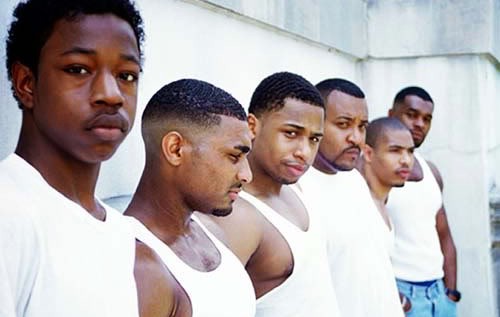Noriega appeals to U.S. high court to avert extradition to France

(CNN) — In what may be former Panamanian dictator Manuel Noriega’s final showdown with the United States, his attorneys have filed a petition with the U.S. Supreme Court to block his extradition to France.
Last month, the court refused to hear Noriega’s appeal as he fights extradition to France, which claims that Noriega laundered drug money through France’s banking system.
Noriega’s attorneys are hoping that the dissenting opinion in that ruling, written by Justices Clarence Thomas and Antonin Scalia, will help persuade the full court to take up the case, which — if that happens — could have a profound effect on how the federal court system deals with cases involving Guantanamo Bay detainees.
“Answering the questions raised here would significantly aid in the resolution of as many as 200 petitions before the federal district court regardless of how the court rules,” said Noriega appellate attorney Jon May.
“This would give the courts the direction and the guidance that they have not received previously from either the administration or Congress, on how to resolve these petitions,” he said.
Noriega was convicted in 1992 on cocaine trafficking, racketeering and money laundering charges and he remains imprisoned outside Miami, Florida, two-and-a-half years after he completed his prison sentence.
Noriega was given prisoner-of-war status after his conviction, and he believes that under the Geneva Conventions, his status as a POW allows him to be sent back to Panama. The U.S. government says he can be transferred to another country. So far, all of the federal courts have ruled against the former general as he fights extradition to France.
The Military Commissions Act of 2006 prohibits anyone from going to federal courts and using treaties such as the Geneva Conventions to secure their release or to block an extradition. The question in his case is whether the Geneva Conventions can be ignored in the federal courts. Noriega argues that the Geneva Conventions should not be ignored, and that he and the Guantanamo detainees are POWs, and the United States is required to repatriate prisoners of war at the end of hostilities.
The Supreme Court’s decision not to take the case was done without comment from the majority. Thomas wrote the court’s dissent, saying, “Whatever conclusion we reach, our opinion will help the political branches and the courts discharge their responsibilities over detainee cases, and will spare detainees and the government years of unnecessary litigation.
“These considerations alone justify review,” Thomas wrote.
Noriega’s lawyers are hoping that because the dissent was so strong, other justices can be convinced to take up the case. A defendant has 25 days after a Supreme Court ruling to file a motion for a rehearing with the full court, which is what Noriega has done.
But one legal expert said that it is highly doubtful the Supreme Court will hear the case, which would pave the way for Noriega to be deported to France.
“I think they’d rather take one of these 200 cases that deal with the Guantanamo Bay situation rather than a single case, like Noriega, which has different factual components,” said Charlie Shanor, a constitutional law expert at Emory University.
“The Supreme Court is not there to decide individual cases. Noriega is not about the war on terror. It’s a one-of-a-kind case,” he said.
Not every U.S. prisoner needed an army to arrest him.
But that’s what happened to Noriega. In December, 1989, U.S. forces stormed Panama, on the orders of then-President George H.W. Bush, with over 27,000 troops. Twenty-three U.S. troops were killed during the invasion.
Noriega was captured and brought to the United States to stand trial. Now, his attorney says, he simply wants to go back home.
“He’s entitled to under the Geneva Conventions. It requires that prisoners of war be repatriated after the cessation of hostilities,” said May, Noriega’s attorney.
“It applies to our soldiers and our enemies. It’s necessary to preserve the rights of all POWs to go home,” he said.
In Panama, Noriega is wanted for the murder of a political rival. Panama has requested his extradition, but the United States is honoring France’s extradition request instead. France has already convicted him, in absentia, but promises to give him a new trial.
The U.S. attorney’s office in Miami has filed a motion to have Noriega removed to France immediately, but a federal judge has not yet made a ruling.
If this last-ditch effort with the U.S. Supreme Court fails, the final decision will be made by Secretary of State Hillary Clinton, whose signature is needed on the extradition order after the court action has run its course.
That would mean an end to Noriega’s 20-year stay in the United States.



